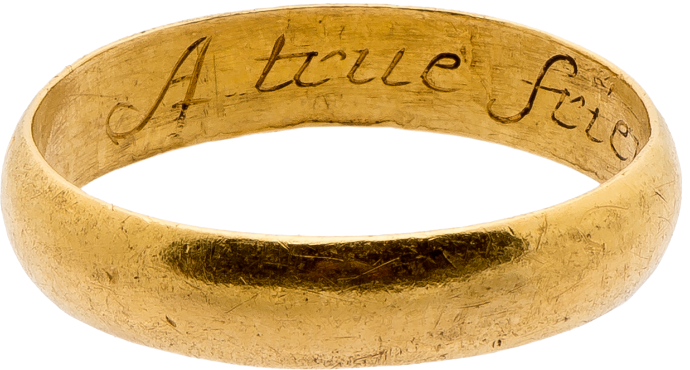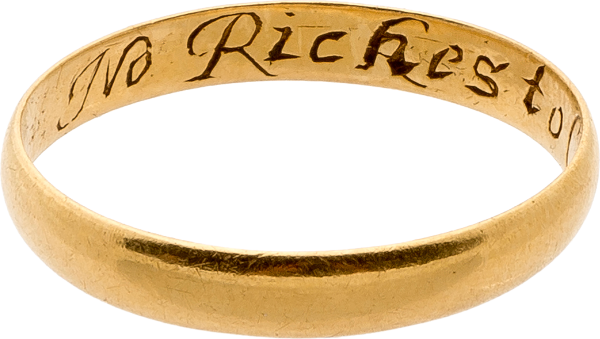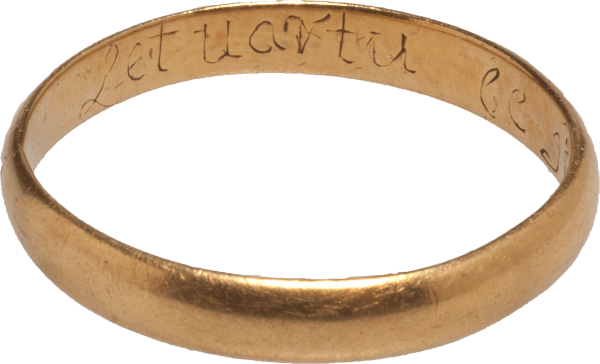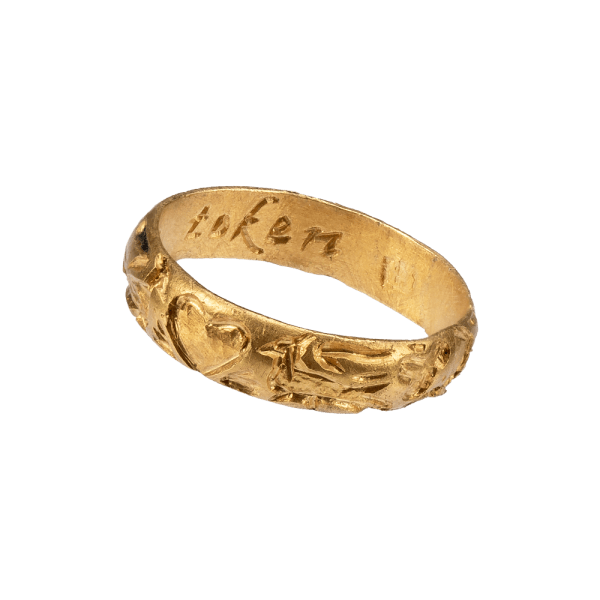


Posy Ring, "A true friends gift"
, first half of 18th century


Posy Ring, "A true friends gift"
Description
Rings with love mottos and amatory inscriptions were known as "posy rings," a term which derives from the term poetry or poésie. Posy rings were well established by the Tudor and Elizabethan periods and feature in the plays of William Shakespeare in The Merchant of Venice and in Hamlet (III, 2, 162: "Is this a prologue, or the posy of a ring"). In 1579 John Lyly wrote in his book Euphues and England that posies "are always next to the finger, not to be seene of him that holdeth you by the hand, and yet knowne by you that weare them on your hands." Here Lyly describes a characteristic of later posy rings where the message would be discretely concealed within the hoop, known only to giver and recipient. Throughout the seventeenth and eighteenth centuries posy rings enjoyed great popularity, as did some recurring posies, such as "a gift for a friend" or the "a true friends gift."
Wide gold band with D-section, plain on the exterior and on the interior is the engraved inscription in italics "A true friends gift" and a rectangular punch with the maker's mark "JC" in Gothic letters. The goldsmith can tentatively be identified as Joseph Collier from Plymouth. His mark was first registered in 1713-4 and he died in 1764. The ring is in good wearable condition.
Literature:
Joan Evans records four variations of this motto (Evans 1931, p. 24), for example in the British Museum (Dalton 1912, no. 1109). The maker's mark of Joseph Collier from Plymouth appears on a number of rings in the British Museum, London (AF 1344; 1961.1202.34, 35, 63, 154, 155, 210, 275, 343). For a history of posy rings with extensive list of posies, see Evans, 1931 and Anon., A Garland of Love: A Collection of Posy-Ring Mottoes, London 1907. For further information, see Dalton 1912, pp. 174 ff.; Scarisbrick 2007, pp. 74 ff., Taylor and Scarisbrick 1978, and Oman 1974, pp. 39 ff..


